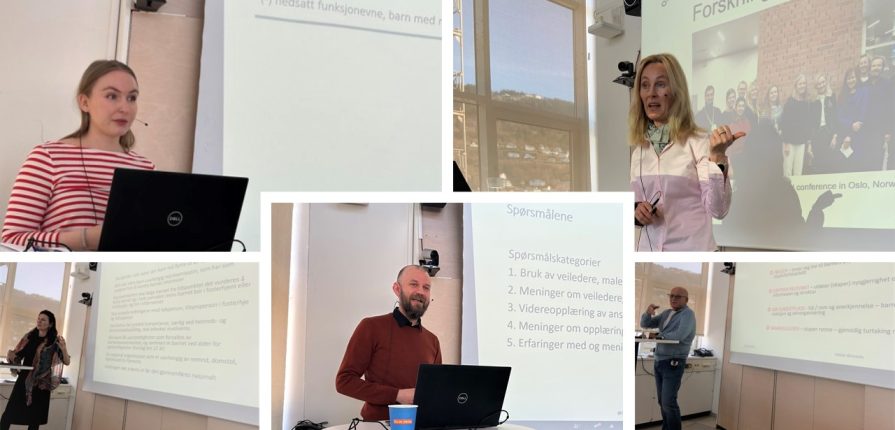On Tuesday 18th of April and Wednesday 19th of April DIPA hosted the participation workshop. This workshop is connected to the Participation project, which is a collaborative knowledge project with ambitions to make groundbreaking steps in the understanding and implementation of children’s participatory rights. The project is a partnership between researchers at the University of Bergen, DIPA-Centre, and four partners from the child protection system: 1) The County Social Welfare Boards, 2) The Norwegian Courts and their Administration, 3) Bergen municipality and 4) The Change Factory (Expert by Experience). The participation workshop is hosted once per semester and is a way of bringing together different perspectives, knowledge, and experiences – and studying organizational practices. The primary objective of the participation project is to generate new knowledge, develop new measures, and build research expertise that enables society to address the challenge of children’s participation.
The two-day workshop in April was about how the right to participation and involvement is implemented in practice, with a focus on the progress and challenges that the child welfare system, the board, and the courts identify and work with to ensure that children who can form their own opinions can participate and contribute. The workshop’s specific focus was directed towards conversations and interviews with children, the differences, and similarities in these situations, and how employees in various organizations that encounter children in child welfare contexts work to conduct and facilitate information and conversations with children. The speakers during the workshop consisted of Professor Marit Skivenes (Head of DIPA), Haldor Øvreeide (Clinical psychologist), Gunn Astrid Baugerud (Cognitive developmental psychologist), Audun Gabriel Løvlie (Researcher at DIPA) and Frøydis Pettersen Jensen (PhD fellow at DIPA).
18th of April – highlights
Professor Marit Skivenes kicked off the day with an introduction and presentation titled “Children’s representation and their rights”. Marit’s presentation was followed by a talk from Clinical psychologist Haldor Øvreeide on “Conversation with children in child welfare cases: what is important and how to assess children’s views”. Gunn Astrid Baugerud gave a lecture titled “How to ensure children’s participation: the importance of good interview technique”. During her talk she emphasized that open and simple questions are the way to go for solid and reliable answers. After a break, Gunn Astrid arranged a group exercise where attendants could test a chatbot version of the interview avatar she is developing. The County social welfare boards gave a presentation on “Conversations and dialogue process – how the board meets and talks with children.” The workshop ended with a discussion, summary of the day, questions, and comments.
19th of April – highlights
The day started with Professor Marit Skivenes welcoming everyone. PhD candidate Frøydis Pettersen Jensen presented on guidelines and organizational instructions on children’s rights to participation and summed up the main findings from report 1. The report is titled: “Structuring Practice for Children’s Participation. Report I for the Participation Project: Mapping and Evaluating Organizational Guidelines”. Researcher Audun Gabriel Løvlie presented findings from interviews with decision makers in the partner organisations. The presentation was titled: “On the Meaning of Structure: organisational culture and children’s participation”.. After the two report presentations, the attendants commented and reflected on the reports. The courts presented from their work on children´s participation and gave a talk titled: “Court cases and judges’ encounters with children”. After a short break, the participants discussed what they have learned from the presentations and from each other, which they can take back to their organization and implement in practice. The day ended with a summary and comments of the day and the workshop.

